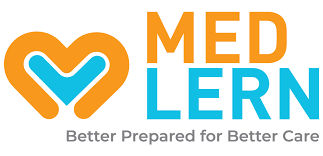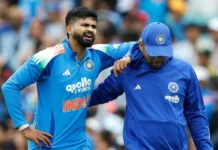Mangalore, 30 March 2022: As cardiovascular issues are becoming the major cause of death in India, MedLern, a leading digital learning solution for hospitals and healthcare professionals, has unveiled an innovative, online resuscitation training platform that does not require instructor oversight. Yenepoya (Deemed to be University), Mangalore is the first university in India to adopt this program for training their medical practitioners in BLS, ACLS and PALS. The globally proven, online program, HeartCode® Complete is co-developed and powered by American Heart Association (Association) science and Laerdal Medical technology.
This program significantly reduces training time as compared to the traditional instructor-led model. The program is divided into two parts – online, self-paced Cognitive Part 1 and Skills Session on the RQI-P GO Simulation Station. Upon completing both parts, the learner receives an American Heart Association course completion e-Card. RQI-P GO Simulation Stations are portable and can be used by hospitals to train their staff on BLS/ACLS/PALS on their hospital premises rather than them travelling to training centres in different locations. The program provides consistent training that meets diverse learning needs and features real-time, audio-visual feedback. The program accommodates the learning style and needs of the learners and they can complete the eLearning portion at their own pace and on their own schedule.
Important Announcement – EasyShiksha has now started Online Internship Program “Ab India Sikhega Ghar Se”
“HeartCode Complete provides healthcare professionals with BLS/ACLS/PALS instruction while being onsite without having to travel to a training facility. This program not only saves time but delivers cost savings. The healthcare organization opting for this program does not have to invest in the equipment as it will be completely managed by MedLern. The survival rate from sudden cardiac arrest is less than 1% worldwide; through this training program, cardiac deaths can be reduced by making the hospital staff skilled in resuscitation. The online training model provides truly personalized learning at scale. A personalized algorithm adapts educational content in real time to the learner’s specific expertise. The learning algorithm also continuously adapts content as the learner is progressing through the training program,” said Deepak Sharma, Co-founder and CEO, MedLern.
The innovative program will improve the staff productivity and deliver better patient outcomes. The program will also reduce the operational cost of physical training and optimize time and resources while delivering high-quality resuscitation training. Since its inception, MedLern has been empowering healthcare professionals with learning opportunities by leveraging technology to prepare the hospital staff to deal with increasingly complex patient care needs and navigate through a constantly shifting healthcare environment. This collaboration is one of the ground-breaking steps towards the same direction that will transform the way resuscitation training is delivered.
“The HeartCode Complete program combines self-paced eLearning with self-directed hands-on skills training to provide a flexible and efficient way to conduct resuscitation training. Without effective education, lay rescuers and healthcare providers would struggle to consistently apply the science supporting the evidence-based management of cardiac arrest. High-Quality CPR is the single greatest determinant for survival from cardiac arrest and is the foundation for which all other therapies are built. This program can also reduce administration and instructor expenses while eliminating material fees,” said Gareth Patrickson – SVP International Customer Impact – RQI Partners.

The Hon’ Registrar, Dr.Gangadhara Somayaji K S, Yenepoya University, stressed the need to train every medical professional in resuscitation. He said, “The introduction of HeartCode Complete at the Yenepoya Medical College Hospital will help the healthcare workers to apply evidence-based protocols in the treatment of cardiac arrest.”
Learn Human Anatomy with EasyShiksha




































































